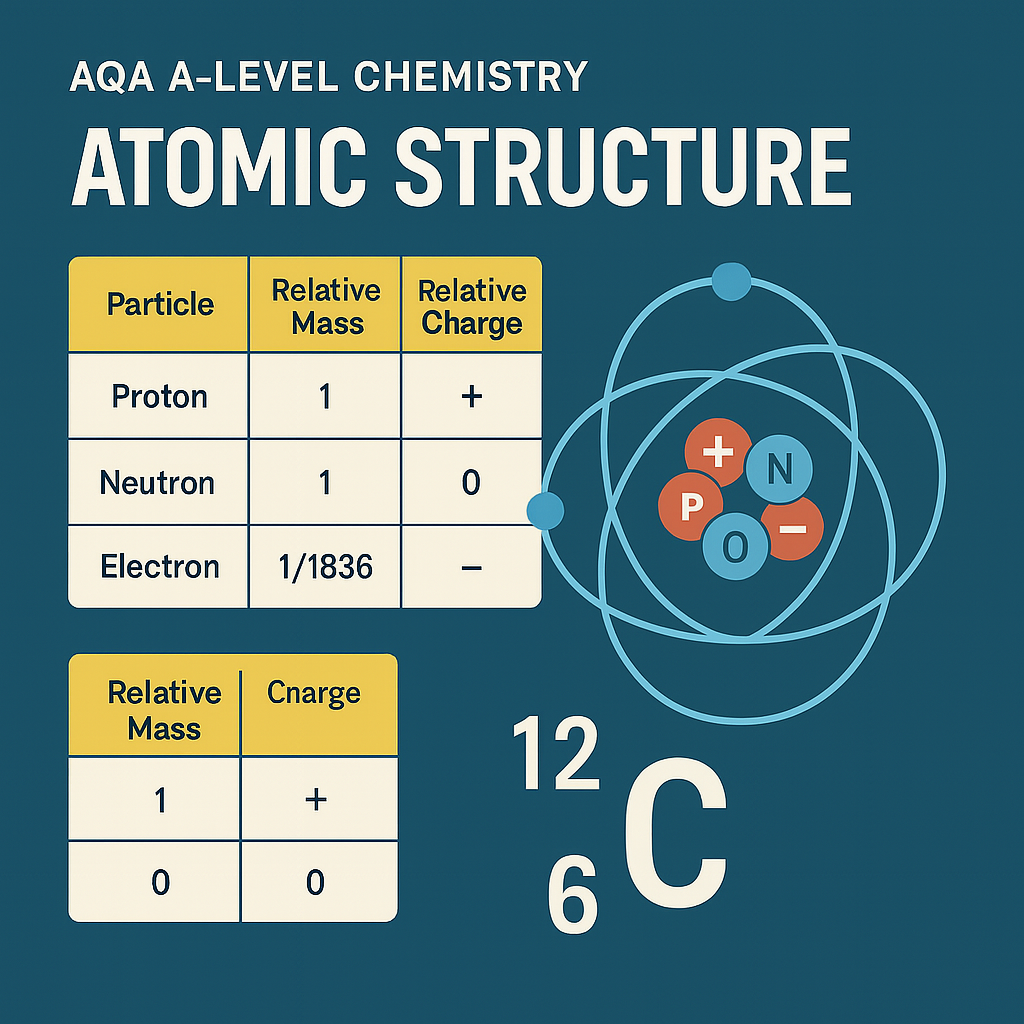Why Exam Questions are the Key to A-Level Chemistry Success
If you want to succeed in A-Level Chemistry, make exam questions the core of your study strategy—not an afterthought.
You’ve revised the notes. Memorised the definitions. You understand equilibrium. You even kind of like enthalpy. But when you sit down to do the paper... things fall apart.
Sound familiar?
That’s because A-Level Chemistry isn’t just about what you know. It’s about what you can do with what you know—under pressure, in exam conditions, with limited time and high stakes.
The truth is, the students who get A*s aren’t always the ones who know the most chemistry. They’re the ones who’ve mastered the art of exam questions.
In this blog, we’ll show you exactly why focusing on exam technique—and especially on exam questions—is the fastest and most effective way to transform your performance in A-Level Chemistry.
Understanding the gap between knowing and scoring
You’ve probably had that moment: you knew the topic... but got 3 out of 6. Why?
Because:
You misread the command word
You didn’t give enough steps in a calculation
You gave a textbook explanation that didn’t answer the question
You didn’t use the right keywords
You forgot the units or significant figures
You missed the application to the context of the question
That’s the gap. And the only way to close it is to practise exam questions consistently and strategically.
The real reasons exam questions matter more than notes
You learn what examiners actually reward
Mark schemes show exactly how marks are allocated. For example, a 3-mark question asking "Explain the trend in atomic radius across Period 3" will only award marks for:
Increased nuclear charge
Same shielding
Greater attraction between nucleus and outer electrons
If you write a paragraph about "more protons and smaller atoms", you might score 1/3. That’s a big wake-up call—and one you only get by comparing your answer to real exam questions.
You train your brain to spot patterns
Examiners repeat question types (even if the words change). The more questions you do, the more you notice:
Equilibrium questions often test shifts due to pressure or temperature
Enthalpy questions usually include a bond enthalpy table or an unfamiliar reaction path
Organic mechanism questions follow predictable marks: curly arrows, lone pairs, intermediate, product
Practising questions helps you see these recurring structures, so you can tackle new contexts more confidently.
You develop timing and stamina
A-Level Chemistry exams are intense. Paper 1 is two hours. Paper 2 is two hours. Paper 3 is synoptic and can feel unpredictable.
You need to:
Manage your time
Pace your calculations
Leave space to review
Stay focused for 120 minutes
Doing full questions (and eventually full papers) helps build the mental muscle to stay sharp under pressure.
You expose your weak spots early
You might think you understand redox. But the second you have to balance half equations in acidic solution? You realise what needs work.
Every question you attempt is a diagnostic tool. You’ll quickly identify:
Which topics you skip
Which types of questions make you freeze
Where you lose marks consistently (e.g. missed units, sig figs, incomplete explanations)
This lets you focus your revision with laser accuracy.
How to make exam questions your #1 study tool
Let’s break this down into a practical, repeatable strategy.
Step 1: Start with topic-based questions (not past papers)
Early on, you should practise by topic. For example:
Atomic structure
Bonding and structure
Amount of substance
Energetics
Kinetics
Equilibrium
Redox
Organic reactions
Spectroscopy
Use resources like:
AQA/OCR/Edexcel question packs
Physics & Maths Tutor
Save My Exams
SnapRevise
Past paper question banks
Start by doing a small set of questions per topic. After each set, review:
Which marks you gained
Which marks you lost (and why)
What the mark scheme expected
Any key phrases you missed
Step 2: Build an exam question journal
Treat your practice seriously. Create a “mistake book” or journal where you:
Write the question
Summarise the correct answer
Note what you wrote that was wrong/missing
Add examiner comments if available
Re-write the perfect answer in your own words
This is one of the most high-impact techniques top students use. Reviewing it weekly compounds your learning and reduces repeat errors.
Step 3: Practise exam timing in short bursts
Start doing time-limited practice.
Set a timer for 20 minutes
Attempt 3–5 medium-length exam questions
Mark your answers right away
Note how your time management felt
This builds confidence, speed, and accuracy.
Step 4: Graduate to full paper practice
As you get closer to mocks or final exams:
Attempt full past papers under timed conditions
Mark them strictly using the official mark scheme
Identify your weakest areas
Return to topic-level practice as needed
This stage is about building exam fitness—endurance, precision, and recovery (reviewing mistakes properly).
Step 5: Use examiner reports to level up
Every exam board publishes examiner reports for each paper. These highlight:
Common mistakes students made
What most students got wrong
What a good answer looks like
Where students lost marks due to misinterpretation
Reading these helps you think like an examiner—which is one of the most powerful skills you can have.
The most common ways students lose marks (and how questions fix them)
| Problem | How Questions Help |
|---|---|
| Misreading command words | Get used to ‘Describe’ vs ‘Explain’ vs ‘Evaluate’ |
| Missing units or sig figs | Constant practice builds automatic habits |
| Forgetting context (e.g. real gases) | Questions force you to adapt your theory |
| Not answering in steps | 4-6 mark questions train you to structure explanations |
| Rushing calculations | Timed practice improves layout and accuracy |
| Not learning mark scheme phrasing | Repetition teaches you the exact vocabulary examiners reward |
How often should you do exam questions?
Think of it like this:
Early in the year: 2–3 short sets per week by topic
Mid-year: 1–2 full papers per month + ongoing topic practice
In the final 6–8 weeks: 2–3 full papers per week, reviewed carefully
The more exam questions you do, the more confident and fluent you become.
What about if I’m not getting them right?
That’s good news. Getting things wrong in practice is how you learn.
The key is:
Reflect
Review the mark scheme
Rewrite a model answer
Redo a similar question next week
The goal isn’t perfection—it’s growth. Every error is a shortcut to a better grade—if you pay attention.
What if I’ve done all the past papers?
Great! That’s your foundation. Now:
Redo older papers after 6+ weeks—they’ll feel fresh again
Do questions from other exam boards (many are similar)
Mix and match questions to create your own practice papers
Teach the topic to someone else—using real questions as a quiz
Turn past paper mark schemes into mini flashcards
Example: How to learn more from a single question
Question:
Explain why the boiling point of NaCl is higher than that of HCl.
Common student answer:
“NaCl is ionic and HCl is covalent.”
Mark scheme answer:
NaCl has strong electrostatic forces between oppositely charged ions
HCl has weaker intermolecular forces (dipole-dipole)
More energy is required to overcome ionic bonds than dipole-dipole interactions
What to learn:
Always compare both substances
Always mention the type and strength of force
Always link back to energy required for boiling
If you reviewed just 20 questions like this in detail, your marks would go up—guaranteed.
What about students who are already getting B grades?
If you’re plateauing at a B, exam question mastery is often the missing piece.
It helps you:
Convert 3/6 into 5/6
Spot patterns you’re missing
Refine your scientific phrasing
Learn the difference between a "good" answer and a "great" one
Push into A and A* territory
Can you improve with exam questions even if you're getting low grades now?
Yes—and in fact, this strategy works best for students who feel overwhelmed by content.
Instead of endless note-making, try this:
Do 2 exam questions per topic per day
Use them to guide what you revise
Build confidence as you see patterns form
You’ll learn faster by doing than by reading.
Final thoughts: mastery comes from doing, not just reading
Chemistry is a skill-based subject. And like any skill—driving, playing piano, cooking—it’s practice, not theory, that takes you from beginner to expert.
The students who score highest in A-Level Chemistry are the ones who:
Practise past paper questions consistently
Review their mistakes carefully
Think like examiners
Prioritise application over memorisation
If you want to succeed in A-Level Chemistry, make exam questions the core of your study strategy—not an afterthought.
Want help mastering Chemistry exam technique?
Dr Marguerite Quinn is an experienced online A-Level Chemistry tutor with a PhD in Chemistry and over 3,470 hours of teaching experience. She specialises in helping students turn knowledge into marks—through strategic exam question practice, feedback, and confidence-building.
Book a free 15-minute consultation to discuss how she can help you succeed in your exams.
Let me know if you want an infographic, checklist, or HTML tables added for Squarespace formatting.





Understand AQA A-Level Chemistry Section 3.1.1.2 on mass number and isotopes. Learn key definitions, isotope notation, calculations, and how this topic builds your scientific and exam skills.